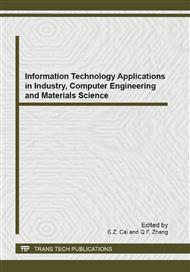p.4372
p.4377
p.4382
p.4388
p.4394
p.4401
p.4407
p.4412
p.4419
Impact of Automation to Maritime Technology
Abstract:
Due to incredibly advancing technology and reduced manning levels in the maritime industry there is now a cultural shift in the maritime industry toward increased levels of automation in tasks, particularly with regard to navigation systems. But there are two sides to the automation advances. Increasing automation causes the loss of situation awareness, which can significantly affect performance in abnormal, time-critical circumstances. This paper presents an overview of the application of automation in marine system and its impact to the systems performance.
Info:
Periodical:
Pages:
4394-4400
Citation:
Online since:
September 2013
Authors:
Keywords:
Price:
Сopyright:
© 2013 Trans Tech Publications Ltd. All Rights Reserved
Share:
Citation:


